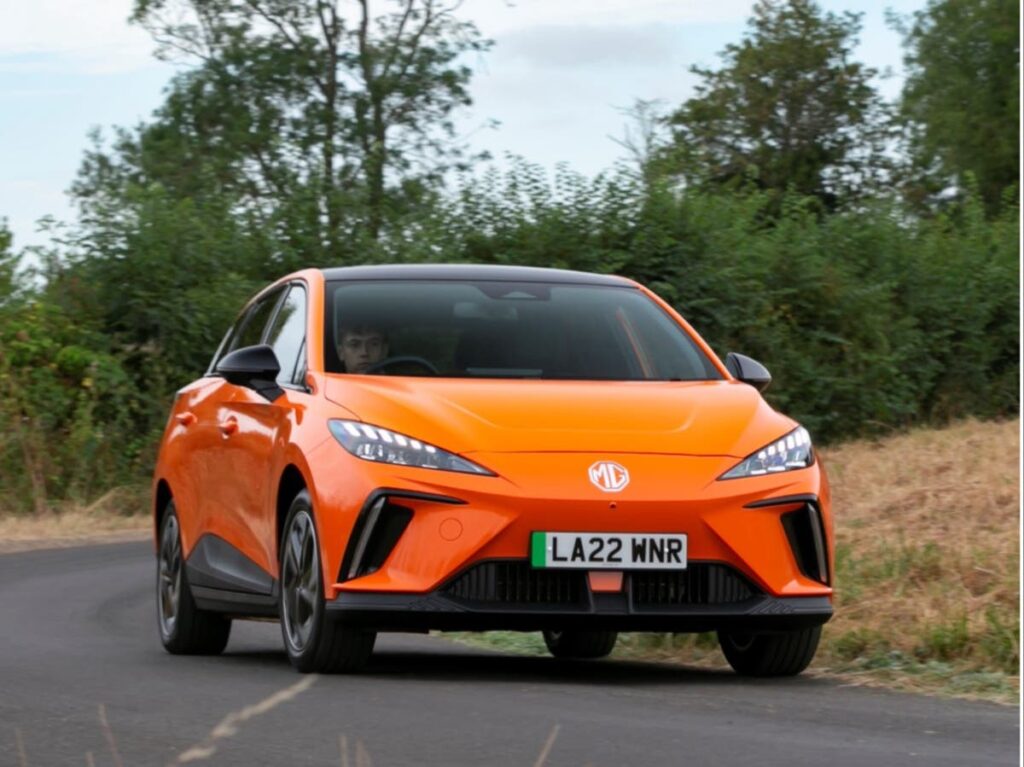Car manufacturer MG Motors is confident that the recent decline in UK demand for electric vehicles is only a temporary trend. Despite the downturn, MG has experienced a remarkable 40% surge in sales, attributing its success to strategic pricing and abundant supply.
Established in the 1920s and now under Chinese ownership, the iconic brand MG has leveraged its history and innovative approach to swiftly adapt to market changes. The company’s robust electric vehicle lineup and competitive pricing have positioned it as a formidable player in the automotive industry.
MG Motors, originally founded in Oxford, has undergone significant transformation since its inception. After Rover’s collapse, MG was revitalised by new ownership under SAIC, China’s largest state-owned car maker. This transition has been marked by strategic decisions that have rejuvenated the brand, leading to increased market presence and popularity.
As part of its strategic focus, MG has prioritised competitive pricing and a generous supply of vehicles. This has enabled the brand to re-establish itself as a major player in the UK market, capitalising on the growing demand for affordable electric vehicles. MG’s approach has effectively filled the gap left by more expensive counterparts, broadening consumer accessibility.
MG’s Strategic Evolution
MG’s current success can be attributed to multiple factors that fortify its market standing. Most notably, the brand benefits from its extensive access to battery resources, a crucial aspect of electric vehicle production. As lithium refining is predominantly based in China, MG has leveraged this advantage to enhance its electric vehicle offerings.
In addition to resource accessibility, the company’s alignment with industry trends towards electrification has bolstered its position. MG’s dual offering of traditional and electric vehicles provides flexibility amid fluctuating consumer interests and regulatory changes, ensuring its readiness for future market directions.
Leveraging Resources and Industry Trends
Despite fluctuations in demand, MG’s market impact remains profound. Currently, MG commands 4.11% of the UK car market, outperforming well-known brands like Mini and Renault. This achievement highlights MG’s ability to capture consumer interest even amidst market volatility.
The MG HS SUV, a noteworthy model, has secured its place as one of the top ten best-selling vehicles in the UK. With a price tag of £24,995, it appeals to cost-conscious consumers seeking value within the electric vehicle segment. This model underscores MG’s commitment to offering quality and affordability.
Market fragmentation poses challenges, yet MG’s agility and strategic foresight have enabled the brand to navigate these complexities effectively. By focusing on competitive pricing and consumer-centric strategies, MG continues to strengthen its foothold in the automotive landscape.
Market Impact and Consumer Appeal
MG Motors is not alone in witnessing changes within the electric vehicle sector. Many automakers are resorting to price reductions to stimulate sales, reflecting a broader industry trend. The cost disparity between electric and petrol vehicles remains a barrier, though initiatives to close this gap are ongoing.
A key challenge lies in the cost structure of charging electric vehicles. While home charging offers economical benefits, the use of costly public charging stations can offset these gains. This issue has led to industry calls for governmental intervention to reduce VAT on public charging.
Automakers must continue to innovate and address these challenges to enhance electric vehicle adoption. MG’s proactive approach serves as a potential model for others in the industry, highlighting the importance of adaptability and strategic planning.
Industry Challenges and Responses
The evolving automotive landscape demands constant adaptation. MG has demonstrated resilience through its ability to pivot and align with market demands. The company’s efforts to streamline production and capitalise on emerging opportunities underscore its forward-thinking mindset.
As the UK eyes a future less reliant on internal combustion engines, MG’s dual focus on both electric and traditional vehicles positions it advantageously. This strategy ensures MG can meet short-term demands while preparing for long-term regulatory shifts that favour electrification.
By capitalising on its resources and strategic insights, MG maintains its competitive edge. The brand’s ongoing innovations and market adaptability highlight its commitment to sustainability and industry leadership.
Strategic Adaptation and Future Outlook
Concerns surrounding the influx of Chinese cars in the UK market have surfaced, particularly regarding security risks posed by increased vehicle automation. While this debate continues, MG remains focused on its growth and alignment with consumer needs.
The Institute of the Motor Industry has raised issues related to data security and potential vulnerabilities. However, MG’s emphasis on quality and innovation aims to mitigate these concerns while prioritising customer trust and vehicle integrity.
Navigating these complexities requires a balance of technological advancement and stringent security measures, a task MG has embarked on with diligence.
Navigating Security Concerns
MG’s success story in the UK exemplifies the potential of strategic foresight and adaptability in the automotive industry.
Conclusion of Market Insights
MG Motors stands as a testament to the power of adaptability and strategic planning in the volatile automotive market. Its foresight and commitment to innovation have enabled the brand to navigate challenges and harness opportunities effectively. As the industry evolves, MG’s strategic approach ensures its continued relevance and success.

